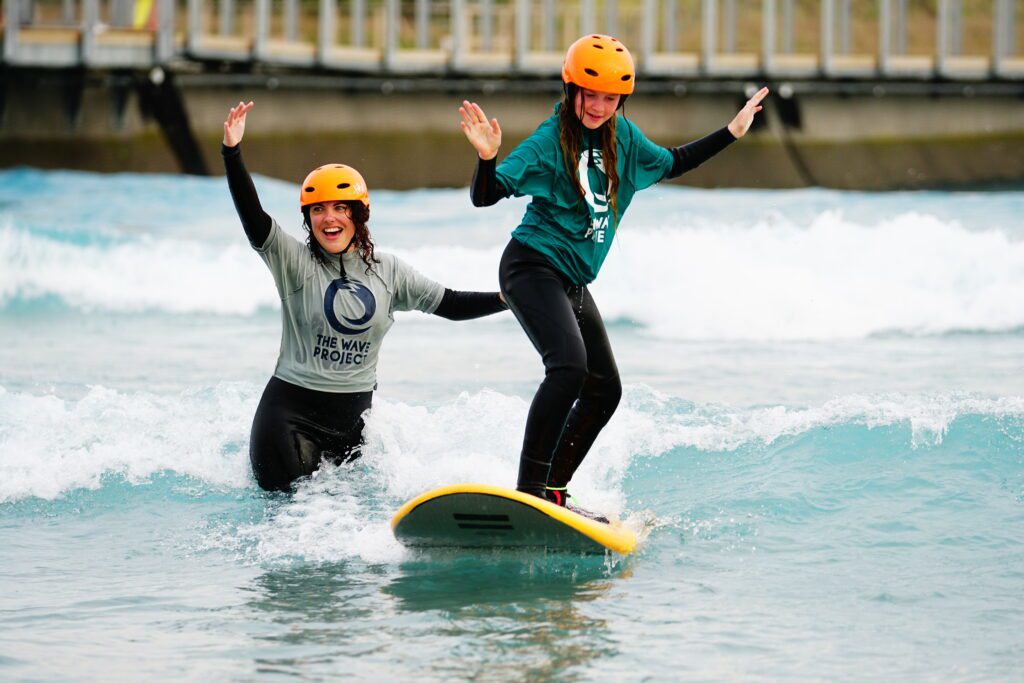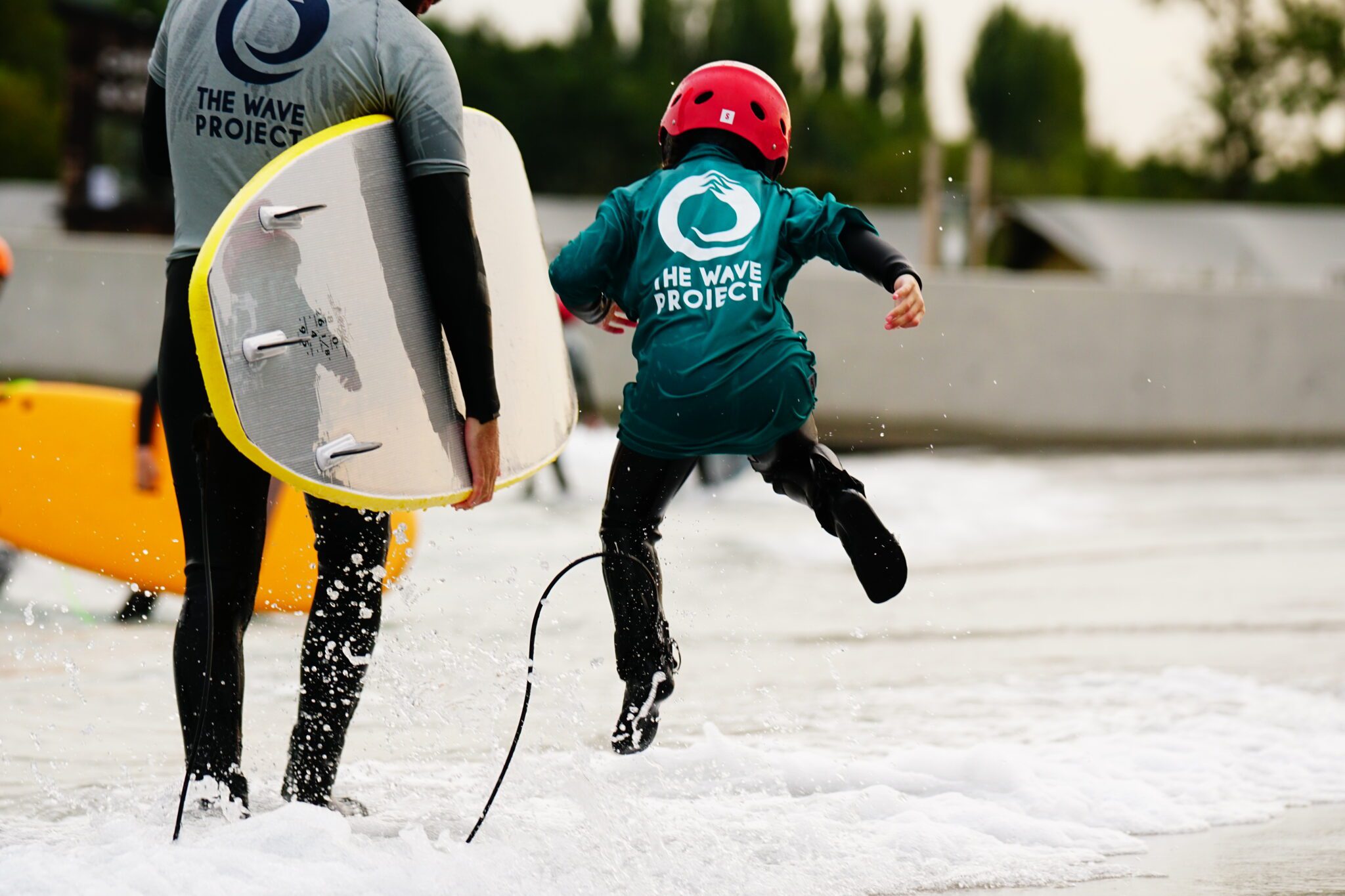The UK – particularly the southwest of England – has been among the world leaders in exploring the potential of blue health, and in 2010 it saw the launch of the world’s first surf- therapy course, funded by the NHS.
The course was entitled The Wave Project and began at Watergate Bay in Cornwall in September 2010, with a group of 20 young people who all had mental health disorders, some suffering from self-harm, depression, schizophrenia or severe anxiety. Having met with considerable success, the project has since set up as a community interest company (CIC), and established operations in London, North Yorkshire, Scotland, Wales, and Northern Ireland. Funded from various sources, including supporters and the National Lottery, the scheme is free to participants and staffed by volunteer surf mentors, of whom there are now 900 across the UK. Mentors help with surfing lessons, of course, but also provide emotional support.
Concerned that the new concept of surf therapy would be viewed with suspicion back in 2010, the Wave Project’s directors have been keen to have their scheme evaluated, which means there is ample data documenting the results of the programme. After the second- ever session, for example, kids who had been on the programme completed pre- and post- forms assessing their feelings of wellbeing. Scores rose on all six measures, most notably on confidence, where the mean score rose from 5.9 to 8.6 out of ten. Feedback was also positive, not least from parents and referrers: for example, this comment from a deputy head teacher about a 14-year-old pupil’s experience:
“She was on the verge of school refusal, and it was often very difficult to get her into school. But since starting the Wave Project, she has been brighter, more communicative in school and sociable.”
Referrals to the scheme come from schools, doctors, social services and other child support agencies. Most of the children had not surfed before, but after the course, 70% of them continued as members of surf clubs. Another study in the same report found that clients felt better (96%), happier (98%), made friends (89%) and felt fitter (87%). Meanwhile, 79% of parents of children who participated in the scheme said their kids had a more positive attitude afterwards: 62% said they had better communication skills; 62% reported children being more active; 56% thought they showed a healthier lifestyle, and 46% knew of improved progress in education since the course.
‘These findings,’ concluded the report, ‘demonstrate a valuable and cost-effective way to deliver mental health care, to mentor and encourage social integration of young people.’
In 2017, The Wave Project joined a group of six other surf-therapy organisations from different countries to form the International Surf Therapy Organisation (ISTO). ISTO now has more than 30 members worldwide, each using surfing for social good. Recognition in the UK came when Olympian Victoria Pendleton became a patron, and again when the Duke and Duchess of Cambridge visited a session on Towan Beach in Cornwall in September 2019. Other schemes have had similarly positive results and some have recorded marked improvements in physical health too.
In 2020 we ran a pilot Wave Project course at The Wave – this was the first-time surf therapy had come inland and was able to be offered to a non-coastal community. It was a huge success and since then the Wave Project has run four 6-week courses with us each year – plus set up a monthly ‘Surf Club’ in 2022 for children that had been through a surf therapy course at The Wave.
There are dozens of other blue care initiatives around the world, including projects for children suffering from autism, physical disabilities, women who have survived breast cancer, and adults coping with drug and alcohol addiction. Surfing is commonly used in blue therapies, and despite its reputation as an activity requiring high levels of skill, inexperienced participants take to it with great enthusiasm. It’s interesting, given it’s a physically demanding sport, that when asked to rank what they like about it, young people put ‘fun’ and ‘surfing’ way out in front, with ‘exercise’ and ‘achievement’ last.46 This seems to be in keeping with an old surfing maxim: ‘The best surfer is the one having the most fun.’ In other words, having fun in the water quickly becomes equal to, or even more important than, surfing prowess.
In 2022 Dr Jamie Marshall published the first-ever PhD thesis on surf therapy and clearly, the subject is now viewed with far less suspicion and scepticism.
For more information on Blue Health, and all scientific references, see our full report.

